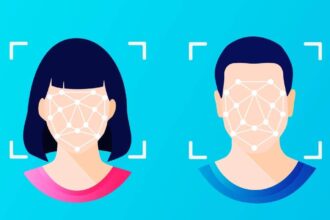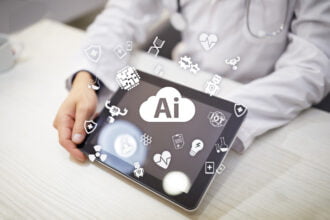AI has been the latest controversy, as it may seem to eliminate the need for human working positions in most professions. Artists, especially, were vocal about their concerns about the technology, considering the system’s merging way of creating art. ChatGPT doesn’t seem to think about the importance of artists after it tells a writer they don’t exist but after citing their previous work.
In most industries, AI is hyped, especially by companies looking to cut costs and minimise risks linked with occupational hazards. And although artificial intelligence is a useful tool that can extend one’s work and capabilities, it must not be included too much in certain sectors, such as marketing.
As businesses increasingly embrace AI in marketing, many are turning to advanced email software that leverages artificial intelligence to enhance customer engagement. This technology automates personalized messaging, optimizes send times, and analyzes user behavior to improve campaign effectiveness. With the ability to streamline communication and deliver targeted content, AI-driven email software is proving to be a game-changer, making it worth the hype for marketers seeking to boost their outreach and conversion rates.
AI should be used with caution and consideration for people’s hard work. At the same time, it can be more powerful next to people’s contribution, which is why we’ll discuss its pros and cons and analyse the hype.
What can AI bring to marketing?
Marketing is always changing in a matter of strategies and methods in relationship with current world trends. Marketing is a mix of technology and human-based interactions, with customer support being the most important part of the advertisement and promotion process. During the steps of this development, marketers can recognise the number of repetitive actions that are time-consuming and don’t offer enough space for innovation and creativity.
Here comes AI technology, whose programmable system is capable of automating these tasks regarding the stage in the marketing process, be it data analysis or campaign personalisation. Artificial intelligence can indeed minimise human errors, such as grammar mistakes or incorrect data entry.
However, AI has some limitations in marketing
Of course, you can choose AI to do your whole marketing campaign, but customers will notice this change more likely and might not like it. In the marketing world, there’s nothing like human interaction to boost the company’s brand into fame, for which services like Savanta in Europe offer personalised research and consulting for B2B and B2C markets to create custom plans for each type of business.
Customers require human connection
Despite clients appreciating customer service chatbots for rapid inquiries, their disadvantage is the lack of emotions and empathy for people’s concerns. And it seems like customers are avoiding using the services or products of a company whose chatbot experience was unpleasant. Of course, that doesn’t mean not using AI in customer support, but your business shouldn’t rely on it fully because any kind of technology cannot overtake human interaction.
Even AI can be wrong sometimes
Although AI is believed to be always right, fast and efficient in providing answers and guidance, the truth gives us another perspective on its performance. For example, AI cannot fully notice different tones in people’s emotions, which is why performing a reliable sentiment analysis is challenging for the system. Intentions are also difficult to seize by technology, and this lack of human features can lead to inaccurate predictions and calculations, affecting data marketing.
AI requires huge sets of data for proper intervention
AI needs a lot of human intervention and considerable sets of data in order to contain all the knowledge required to perform on its own. The tool can only carry out tasks as long as it has the proper set of data with which it can make decisions ―otherwise, its efficiency is little to nothing. Therefore, your company needs someone who is trained in guiding AI by uploading the required data sets, which can also count as a tedious process.
AI can’t compete with human creativity
No matter how advanced this technology is, it can’t beat human creations. AI is merging human-made music and art to create unique pieces, so its activity is still possible with the help of previous human genius outcomes. If you base your marketing strategy on AI too much, the content exposed may seem disconnected from reality, which customers won’t appreciate. After all, your target audience includes only human customers, so why have a fully robotic approach?
How to blend AI and Human resources
Your business can be successful by implementing a fusion between artificial intelligence and employees. This will ensure enough support for your marketing campaign while keeping up with trends and customer demands.
The first thing you can do is conduct an audit and find the areas in your business where AI can bring the most benefits. You can involve your employees or team in this process to brainstorm ideas on the possible contribution of AI to your company. AI can do many repetitive and tiring tasks, so pinpoint them and then focus your attention on the creative process your team can do.
The following step requires you to collect relevant data because AI needs a lot of it to assure you of efficiency. Introduce your AI system to the information you’ve achieved to manage, but be prepared to work continuously in this process because AI and human tasks need to be optimised
Your staff shouldn’t worry about being replaced because AI can’t be reliable without human sustaining and training. AI can be a big help when it comes to automating tasks and collecting data, which are more or less the best things you can use this technology for.
AI shouldn’t be used to make a profit but to enhance people’s creativity resources. In marketing and similar sectors where employees are demanded to use their capabilities, this technological advancement is necessary to help a company flourish with all its employees contributing.
Final take: what’s your opinion on using AI in marketing?
AI is a pretty controversial topic for all professionals out there, and few of them had the courage to take control of the tool and use it solely to leverage creative outcomes. Still, others feel threatened, but technological advancements seem to eliminate the need for human services in most domains. However, AI is best used next to people’s contributions, which is why companies should adopt an inclusive approach and blend these two elements together to develop the economy and bring a new era to life.











